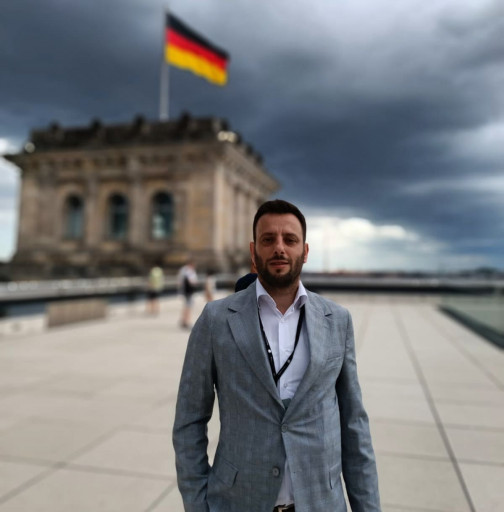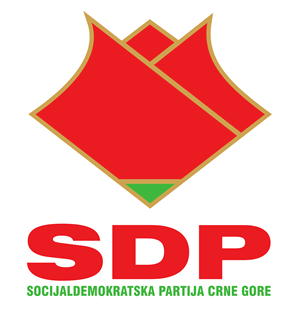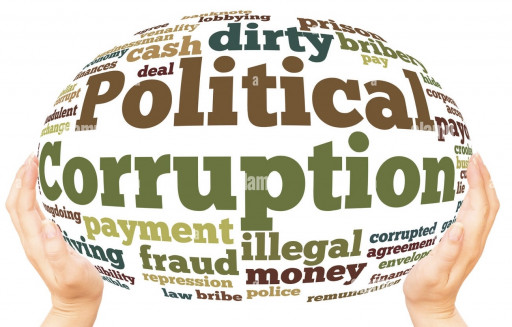Introduction
Political corruption has been a persistent issue in many countries worldwide, undermining democratic principles, economic development, and the trust of citizens in their government. Montenegro, a small Balkan nation with a rich history and picturesque landscapes, has not been immune to this problem. However, in recent years, Montenegro has taken significant steps towards combating political corruption and fostering transparency and accountability within its political system. In this blog post, we will explore the efforts being made to fight political corruption in Montenegro and the impact they are having on the country's governance and society.
Raising Awareness
One of the fundamental steps in combating political corruption is to raise awareness among citizens about its detrimental effects and the importance of their participation in the fight against it. In Montenegro, civil society organizations, media outlets, and educational institutions have played a crucial role in increasing public awareness about corruption issues. Through public campaigns, investigative journalism, and educational programs, Montenegrins are becoming more informed and engaged in demanding clean and accountable governance.
Strengthening Legal Frameworks
Effective legislation and legal frameworks are essential tools in the fight against political corruption. Montenegro has made notable progress in this regard, implementing reforms to strengthen its anti-corruption laws and institutions. The adoption of comprehensive legislation, such as the Law on Prevention of Corruption and the Law on Financing Political Parties, has provided a solid legal basis for investigating and prosecuting corrupt practices. These measures have helped create a deterrent effect and fostered a culture of integrity among public officials.
Empowering Anti-Corruption Institutions
To ensure effective implementation of anti-corruption measures, Montenegro has been working towards strengthening its anti-corruption institutions. The Agency for Prevention of Corruption (APC) has been granted enhanced powers and independence to investigate corruption cases and oversee the implementation of anti-corruption measures. The establishment of specialized prosecutor offices, such as the Special State Prosecutor's Office, has also contributed to more efficient prosecution of high-level corruption cases.
International Cooperation
Fighting political corruption requires international cooperation and exchange of best practices. Montenegro has actively engaged with international organizations, such as the European Union (EU) and the Council of Europe, to receive support and guidance in its anti-corruption efforts. Through participation in regional initiatives and implementation of EU accession requirements, Montenegro has committed itself to aligning its anti-corruption standards with international norms and practices.
Promoting Transparency and Open Data
Transparency and open data initiatives are vital tools for preventing and exposing corrupt practices. Montenegro has made significant strides in promoting transparency in public administration and political processes. The introduction of e-government services and online portals for public procurement and financial disclosures has increased the accessibility of information, reducing the opportunities for corruption. Open data initiatives, such as the publication of government budgets and public expenditure, have facilitated public scrutiny and contributed to greater accountability.
Citizen Engagement and Whistleblower Protection
Engaging citizens in the fight against corruption is crucial for sustained progress. Montenegro has encouraged citizen participation through mechanisms such as public consultations, citizen forums, and whistleblower protection. Whistleblower protection laws have been enacted to safeguard individuals who expose corruption from retaliation. By empowering citizens to report corruption and protecting their rights, Montenegro aims to create a culture of accountability and collective responsibility.
Examples of good practice
In 2019, the Special Prosecutor’s Office (SPO) ordered an investigation into six criminal cases of high corruption against sixteen people (five of whom were accused of office abuse).
Indictments of high corruption were filed against 37 people (two for the abuse of office); court decisions were reached for nine people.
In 2016, a video surfaced of Dusko Knezevic, a controversial businessman, handing over an envelope with money to the mayor of Podgorica (from DPS). An investigation into the “Envelope” affair followed and in December 2019, SPO filed an indictment over money-laundering; the court decision was pending as of February 2021.
In December 2020, SPO ordered the arrest of the director of the Real Estate Administration and Montenegro’s ambassador to Poland, both suspected of office abuse and corruption.
Correspondence between the son of the former president of the Supreme Court of Montenegro was published in the media in April 2022, proving (if confirmed as authentic) that he was involved in drug trafficking. Transcripts of the conversation indicate that she was aware of her son’s illegal activities, and that those involved in criminal activities with her son can expect her protection. After that, the former president of the Supreme Court of Montenegro was arrested. The reason for her arrest is a well-founded suspicion that she committed several criminal acts related to the creation of a criminal organization and illegal influence. In addition to her, several other people related to the case were arrested, including a member of her former security, as well as people who are engaged in business. More arrests are expected.
December 2022 Montenegro’s former head of the Customs Office, Rade Milosevic is suspected of the criminal offence of creating a criminal organization. At the request of the Special State Prosecutor’s Office, the court issued orders to search apartments and other premises used by Rade Milosevic in the towns of Niksic and Podgorica.
He resigned on October 5 after the Special State Prosecution launched an investigation into tobacco theft Niksic. Days earlier, police had questioned him after 1 million euros’ worth of tobacco was stolen from a factory in Niksic where it was supposed to be destroyed.
Milosevic was a high-ranking official of the ruling civic movement URA, led by outgoing Prime Minister Abazovic.
Challenges
Deputy Prime Minister Dritan Abazovic presented the new legislation last October as an “anti-mafia law” that will improve the country’s fight against organised crime and corruption.
The challenge is that the amendments to the law should specify strict procedures so they can be effective in the fight against organised crime and corruption.
In the amendments to the law, the government no longer mentions the criminalisation of illegal enrichment, even though they promised it will be one of this law’s priorities. As a criminal offence, illegal enrichment means that officials who cannot explain the origin of their property can therefore go to prison, and not just have their property confiscated.
The political transition since the general elections in August 2020 has had a direct impact on the functioning of the anti-corruption system, as newly appointed officials have to approve the actions and decisions of former members of such bodies. The change in government has also had an impact on the civil service, as amendments to the Law on Civil Servants and State Employees have reduced the requirements applying to the competence, independence, and merit-based recruitment of civil servants. Judicial reform is also stagnating, as key posts in the judiciary remain vacant and anti-corruption laws have not yet been adopted.
The perceived level of corruption in the country is high; according to the Corruption Perception Index published by Transparency International, Montenegro was ranked 65th out of 180 countries in 2022. Despite numerous reforms, corruption remains a serious problem in the public, private, and business sectors, challenging the trust in public institutions and political life.
Conclusion
While political corruption remains a challenge, Montenegro has shown commendable commitment to tackling this issue head-on. Through the combined efforts of government institutions, civil society, and engaged citizens, Montenegro is making significant strides in fighting political corruption. The awareness-raising campaigns, legal reforms, strengthened anti-corruption institutions, international cooperation, transparency initiatives, and citizen engagement strategies are all contributing to a more accountable and transparent political system. As Montenegro continues its journey towards greater integrity and good governance, these efforts serve as an inspiration for other nations grappling with similar challenges. With sustained determination and support, Montenegro has the potential to become a shining example of successfully combating political corruption in the region.







